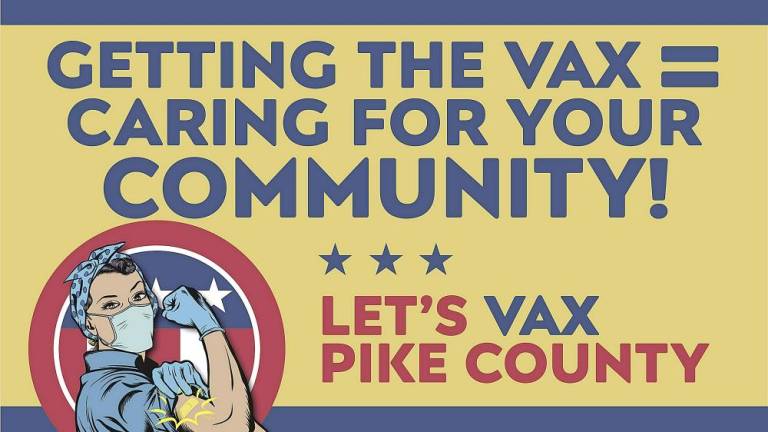Pennsylvania sounds alarm on coronavirus vaccine hesitancy
Covid vaccine. Alison Beam, the state’s acting health secretary, said nearly half of Pennsylvania’s nursing home workers have declined the vaccine.

(AP) A growing number of unfilled appointments and low uptake among nursing home workers are early signs that vaccine hesitancy is becoming an issue in Pennsylvania, prompting state officials to sound the alarm on April 16 and urge residents to get their Covid-19 shots as quickly as possible.
After months of demand outstripping supply, vaccines from Pfizer and Moderna are more readily available, and the Wolf administration said the challenge now is to assuage the concerns of people who are reluctant to get it.
Gov. Tom Wolf and state health officials toured a community vaccination clinic in Hershey that had openings. In nearby Lebanon County, a mass vaccination clinic reported hundreds of available slots, something that might have been unthinkable weeks ago when providers were swamped with requests but didn’t have enough doses to give out.
“The appointment availability does give us cause for concern because it’s indicative of hesitancy, which really is the challenge to come,’’ said Alison Beam, the state’s acting health secretary, who joined Wolf at a news conference.
She said the fact that nearly half of Pennsylvania’s nursing home workers have declined the vaccine is further evidence of “how far we have to go and how much of a challenge overcoming this vaccine hesitancy will be in the near future.’’
Only 53% of staff in skilled nursing facilities have opted to get the vaccine, according to Health Department data, even though the shots have been available to them for months.
With supplies increasing, the state expanded eligibility to everyone aged 16 and older this week. To date, Pennsylvania has vaccinated more than 40% of its eligible population, not including Philadelphia, which gets its supply directly from the federal government and runs its own program.
Philadelphia reported that its hospitals, pharmacies and mass vaccination sites are also suddenly having difficulty filling open slots, prompting city officials to abandon its phased rollout in favor of universal eligibility days ahead of schedule.
“It is a sign that the people who are most eager to get the vaccine have probably already been vaccinated,’’ said Dr. Thomas Farley, the city health commissioner. Now, he said, “we will have to work harder to persuade people to be vaccinated and make it easy for them.’’
’Good information leads to good decisions’
The reasons why some people remain hesitant tend to be similar across demographic, geographic and political groups, said state Health Department spokesperson Maggi Barton, and include “safety, efficacy and benefits for a post-vaccine world.’’
While the decision to get vaccinate or not remains a personal one, she said, the state is “arming our communities with vaccine facts because good information leads to good decisions.’’
In Yeadon, a Philadelphia suburb that’s been especially hard-hit by COVID-19 and where 88% of the residents are Black, volunteers planning a weekend vaccine clinic said that access — not just hesitancy — is at play.
Black people are getting vaccinated at lower rates than white people, according to state data. But when local organizers began marketing the Yeadon clinic — and made it easy to sign up — they quickly filled all available slots.
“We took it to where the people were,’’ said organizer Melinda Emerson of Jack and Jill of America, an organization of African-American mothers whose local chapter is sponsoring the clinic.
“There’s definitely hesitancy,’’ Emerson said, but some people “don’t have internet. Somebody’s grandmom doesn’t know how to go online and get an appointment.”
Statewide, Pennsylvania’s vaccine providers have been administering more than 100,000 shots per day, with more than 4.5 million people receiving at least their initial dose.
“The more people who get vaccinated, the safer all of us are going to be and the sooner we can get out of this,’’ he said. “These vaccines are the way we can fight back and actually move on to the life that we’d like it to be.’’
State officials said they’re planning a print and digital media campaign to get that message out.
Following guidance from the federal government, Pennsylvania this week paused use of Johnson & Johnson’s single-dose vaccine while health experts investigate reports of extremely rare blood clots.
The J&J vaccine has played a small role in the state’s overall vaccine rollout to date, though the pause forced the cancellation of some vaccine clinics and affected programs targeting prison inmates and corrections officers as well as food and agricultural workers and other groups.